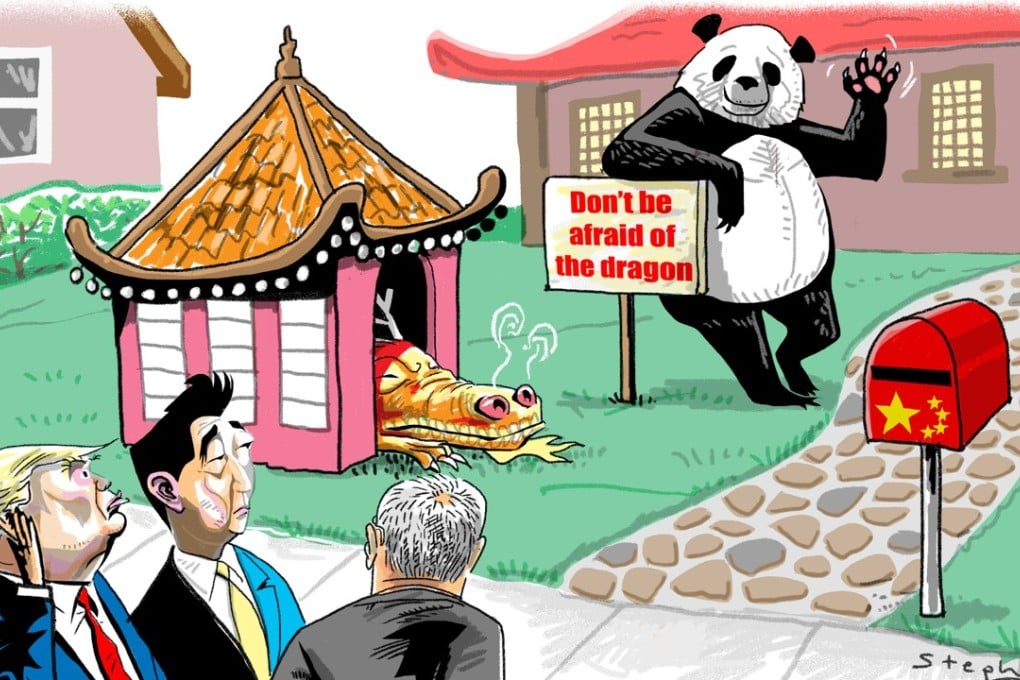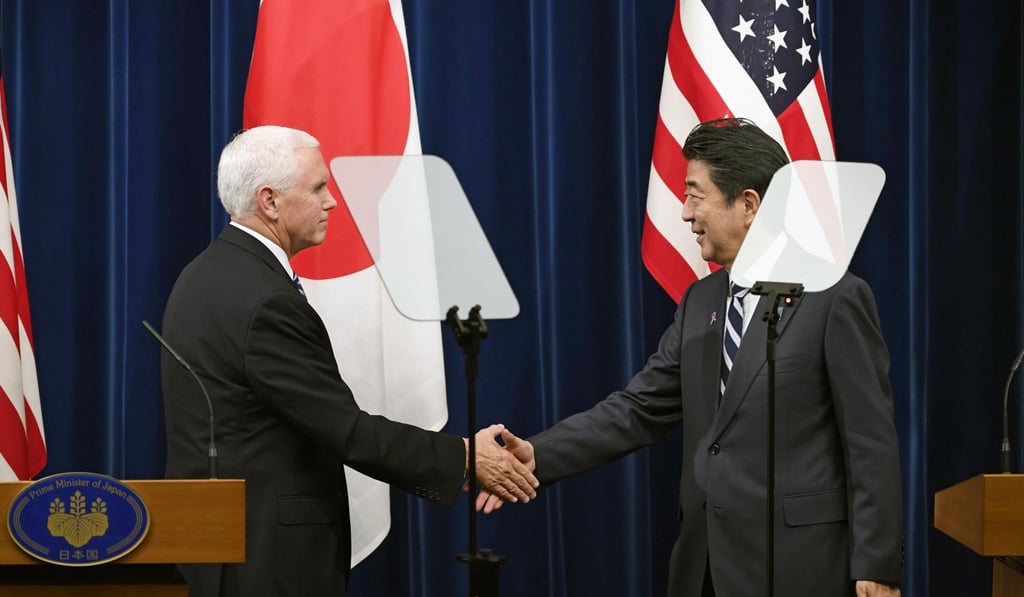Advertisement
Opinion | By reaching out to Japan and reassuring India, China can stop the Quad before it even starts
- Vasilis Trigkas says the US has the determination and military credibility to make the Quad into an Asian Nato. But the alliance won’t work unless all partners are on board, and China can sink it with some careful strategic outreach
Reading Time:4 minutes
Why you can trust SCMP
0

The recent war of words between China and the US at the Apec summit in Papua New Guinea stunned geopolitical pundits around the world and attests to the ominous dynamics in the Asia-Pacific. As the two nations increasingly see issues in terms of security, there is a real danger of matters escalating into a strategic competition for regional alliances.
Just two days before the opening of the summit, an informal meeting took place in Singapore. There, US Vice-President Mike Pence met the leaders of India, Japan and Australia. This was the third meeting of leaders of the four democratic Asia-Pacific states known as “the Quad”, and while the structure has not been institutionalised into an alliance, American strategists have called for the crystallisation of an archipelagic Nato.
Never has the United States faced a challenger with the geo-economic and military might of China, American strategists contend. As Beijing positions itself strategically, arming islets in the South China Sea and developing advanced Anti-Access Area Denial missiles which could bar the entry of US aircraft carriers to the second island chain (the Japan-Guam-Indonesia line), Americans cannot follow their old strategy from the days when Soviet forces in Siberia’s Far Eastern flank could easily be neutralised by the US’ forward-deployed forces.
This time, more structured defence cooperation is necessary, following the Nato model but in an archipelagic calibration to meet the needs of war at littoral environments in the South and East China seas. Washington has thus pushed for enhanced security cooperation with Japan, India and Australia and doubled down on its economic and security engagement with the Quad.
Japan was quick to support the Quad and urged the US to adopt the term “Indo-Pacific” to attract India. India has joined the talks but carefully preserved its strategic autonomy, opposing a military alliance. Meanwhile, Australia sees the Quad as a means to push against China’s influence in its northern region and send a clear signal to Beijing that its economic dependency on China will not limit Canberra’s protection of its core national interests.

Advertisement
